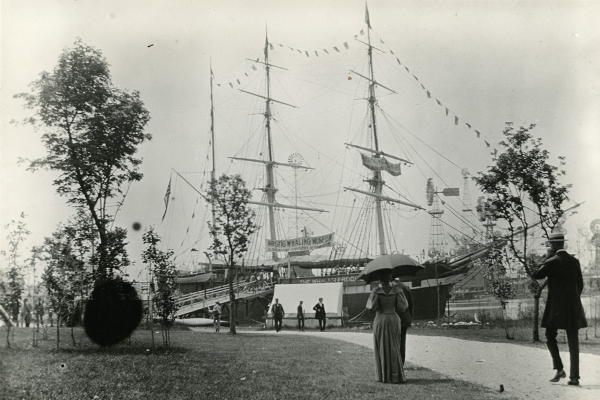The whaling industry helped drive industrialization in the 19th century, with whale oil used to light lamps and lubricate machinery.
The whaling industry helped drive industrialization in the 19th century, with whale oil used to light lamps and lubricate machinery. Even after petroleum replaced whale oil as an energy source in the U.S., whaling continued to be part of our cultural imagination and helped develop the idea of an energy industry, said University of Illinois Urbana-Champaign English professor Jamie L. Jones.
Her new book, “Rendered Obsolete: The Afterlife of U.S. Whaling in the Petroleum Age,” examines the influence of a dying industry during the massive energy transition from the organic fuel sources of the 19th century, including whale oil and wood, to the extraction of fossil fuels. The topic is relevant to the current moment, as we consider how to shift away from fossil fuels to renewable energy sources, Jones said.
“As people try to decide how to disengage from a fossil fuel-intensive life, looking at that historical moment can teach us how we might adapt,” she said. “We can’t look around and say this is what the world looks like after fossil fuels. We can say what the world looks like without whale oil. There once were generations of people who didn’t think they could live without it. It offers the opportunity to see how things look after something has ended.”
Read more at University of Illinois Urbana-Champaign
Image: The whaling ship Progress was exhibited at the 1893 World's Columbian Exposition in Chicago. The ship sailed from New Bedford, Massachusetts, to the Great Lakes and eventually to Chicago to tell the history of whaling and, in particular, whalers’ contact with Indigenous people in the Arctic. The exhibition of the whaling ship was in many ways a flop: In an exposition dedicated to new technology like steam engines, the old whaling ship was of little interest, Jones said. Courtesy Jamie L. Jones






